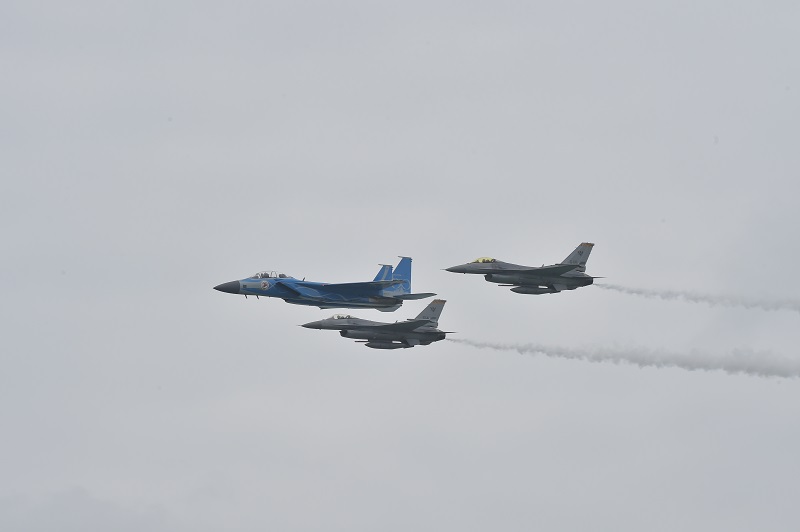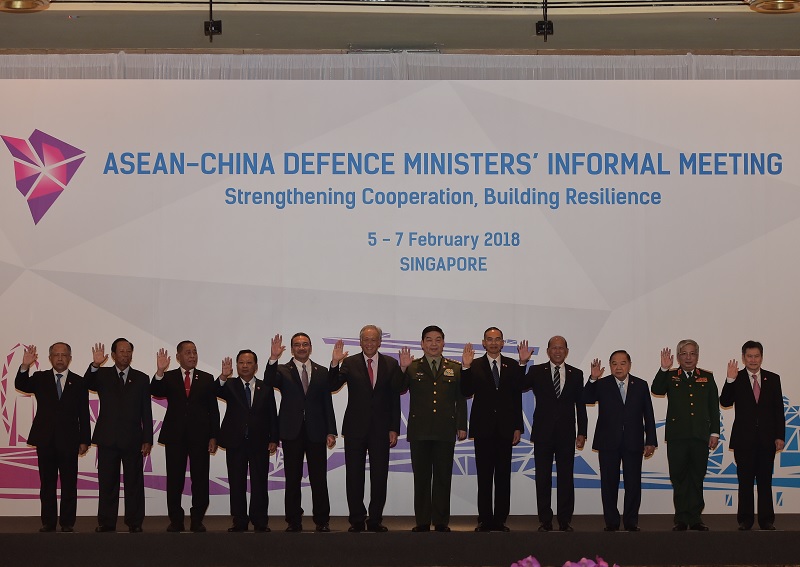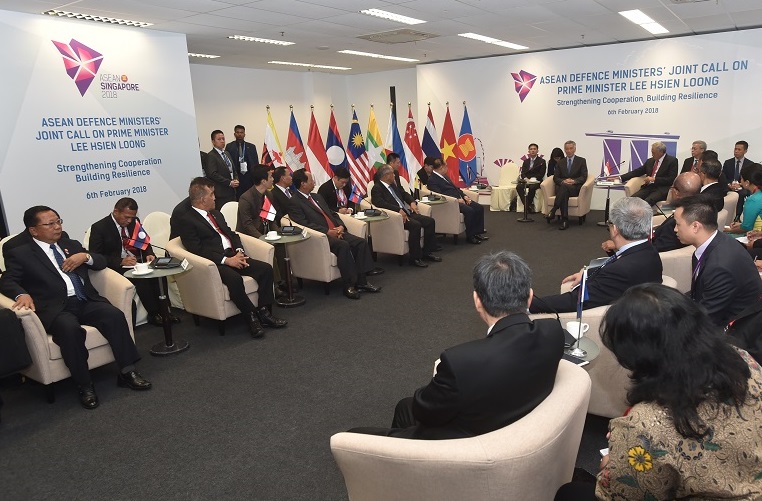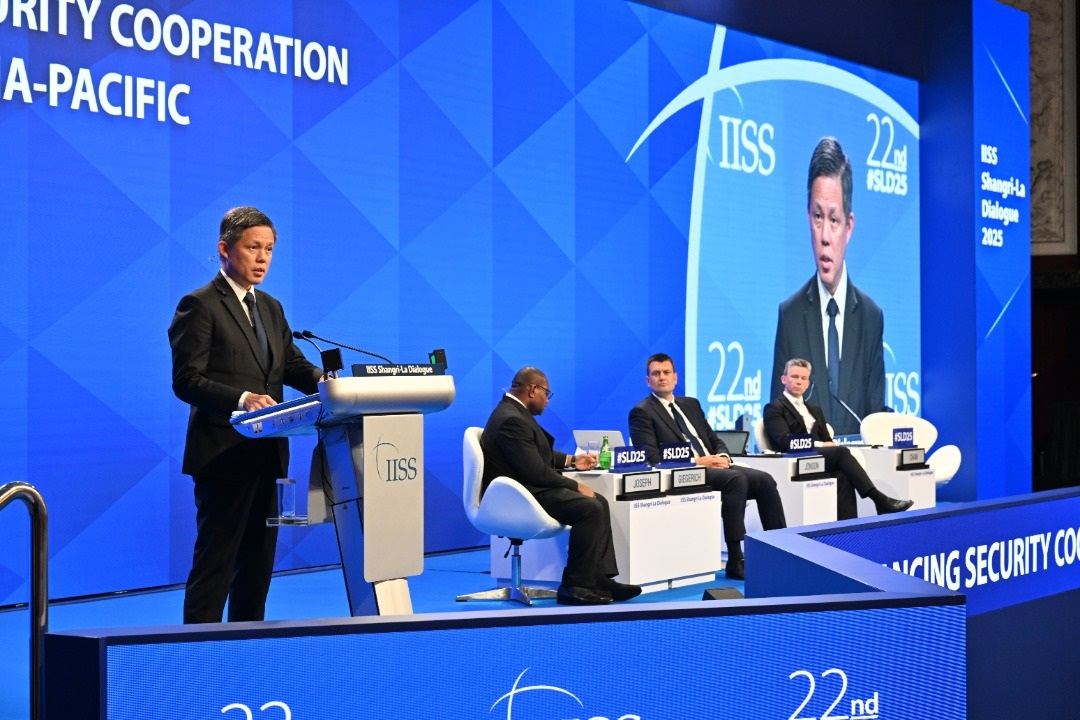DIPLOMACY
NEW FRAMEWORK TO COMBAT TERRORISM IN ASEAN
07 Feb 2018
The ASEAN defence ministers have developed a "Three R" framework to deal with transnational terrorism in the region.
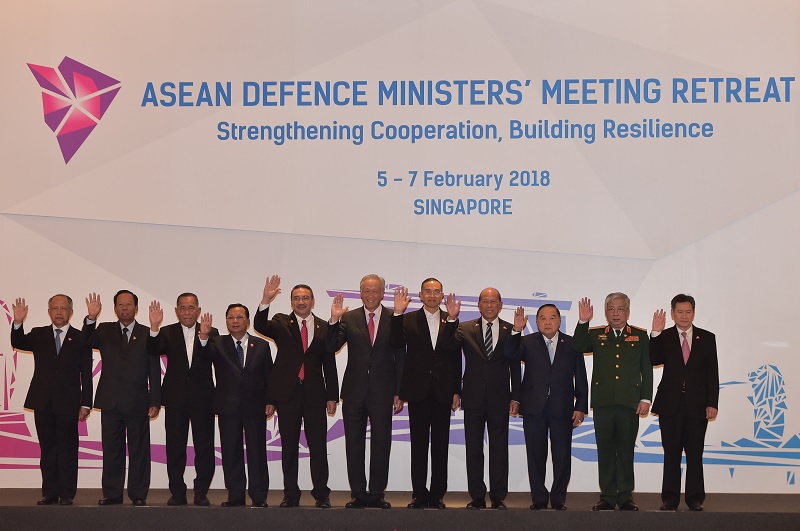
Using the framework of "Resilience, Response and Recovery", the ministers seek to develop resilient citizens who will stand up against radicalisation and misinformation, establish coordinated efforts to collect intelligence and respond to threats, and facilitate recovery in the event of an attack.
Defence Minister Dr Ng Eng Hen announced this on 7 Feb, in an interview following the ASEAN Defence Ministers' Meeting (ADMM) Retreat on 6 Feb.
The Retreat was held at the Ritz-Carlton Millenia Singapore, and was attended by defence ministers and their representatives from Brunei, Cambodia, Indonesia, Laos, Malaysia, Myanmar, the Philippines, Singapore, Thailand and Vietnam. It is a precursor to the 12th ADMM and 5th ADMM-Plus that Singapore will be hosting in October.
Speaking on the sidelines of the Singapore Airshow 2018, Dr Ng noted that counter-terrorism (CT) continued to be a priority of the ASEAN defence ministers, and was the motivation behind the framework.
"We felt that we needed to be more organised, strategic, as well as collaborative in our response to the (security) threats because by the very nature that they were transnational, no single country could deal with it," he said.
He added that while different countries had different focus areas in terrorism they wished to tackle, the "Three R" framework will be a useful guide in helping them identify gaps they need to plug.
For instance, the Singapore Armed Forces is building up its capabilities in the area of "Response" by training more servicemen in island defence and CT.
To show their commitment to combating terrorism, the ministers issued a joint statement on CT efforts in ASEAN. In it, they agreed to enhance CT cooperation among their defence establishments and with external partners, and step up cooperation through joint exercises, information sharing and dialogue.
During the meeting, the ministers also discussed the issue of disputes in the South China Sea. Although there is a Code for Unplanned Encounters at Sea (CUES), Dr Ng said that the ministers were looking to establishing a similar code of conduct for military aircraft as well.
Adding that the ADMM members were looking to obtain an agreement from the Plus members, namely Australia, China, India, Japan, Republic of Korea, New Zealand, Russia and the United States, Dr Ng expressed his hope that a consensus would be reached by October.
He said: "If we do (reach a consensus), I think it'll build confidence that even as we negotiate the code of conduct, that there are measures in place which will reduce the risk of any mishaps or miscalculations."
With the growing sophistication of terror attacks around the world and developments in North Korea, the ministers also discussed chemical, biological, radiological and nuclear (CBRN) attacks. Noting the lack of a network of CBRN experts, Dr Ng said that the Ministers were looking to establish a network of such experts whose knowledge the defence agencies could tap into.
Following the ADMM Retreat, the ASEAN defence ministers held an informal meeting with Chinese Minister of National Defence General (GEN) Chang Wanquan, who was in Singapore from 4 to 8 Feb for his introductory visit.
Calling the meeting a success, Dr Ng noted: "The ASEAN defence ministers, on their part, all articulated that China was an indispensable member to stability and progress in the Asia-Pacific region."
They welcomed stronger relations between ASEAN and China, and the conduct of the inaugural ASEAN-China Maritime Exercise at the end of the year, which they believed could build trust and confidence.
As part of the ADMM Retreat programme, the ministers called on Prime Minister Lee Hsien Loong and attended a luncheon hosted by Mr Lee at the Changi Exhibition Centre, where they witnessed the opening of the Singapore Airshow 2018.
Dr Ng also held bilateral meetings with his counterparts from the ASEAN member states and hosted them to a dinner at the Fullerton Bay Hotel.
ALSO READ IN DIPLOMACY
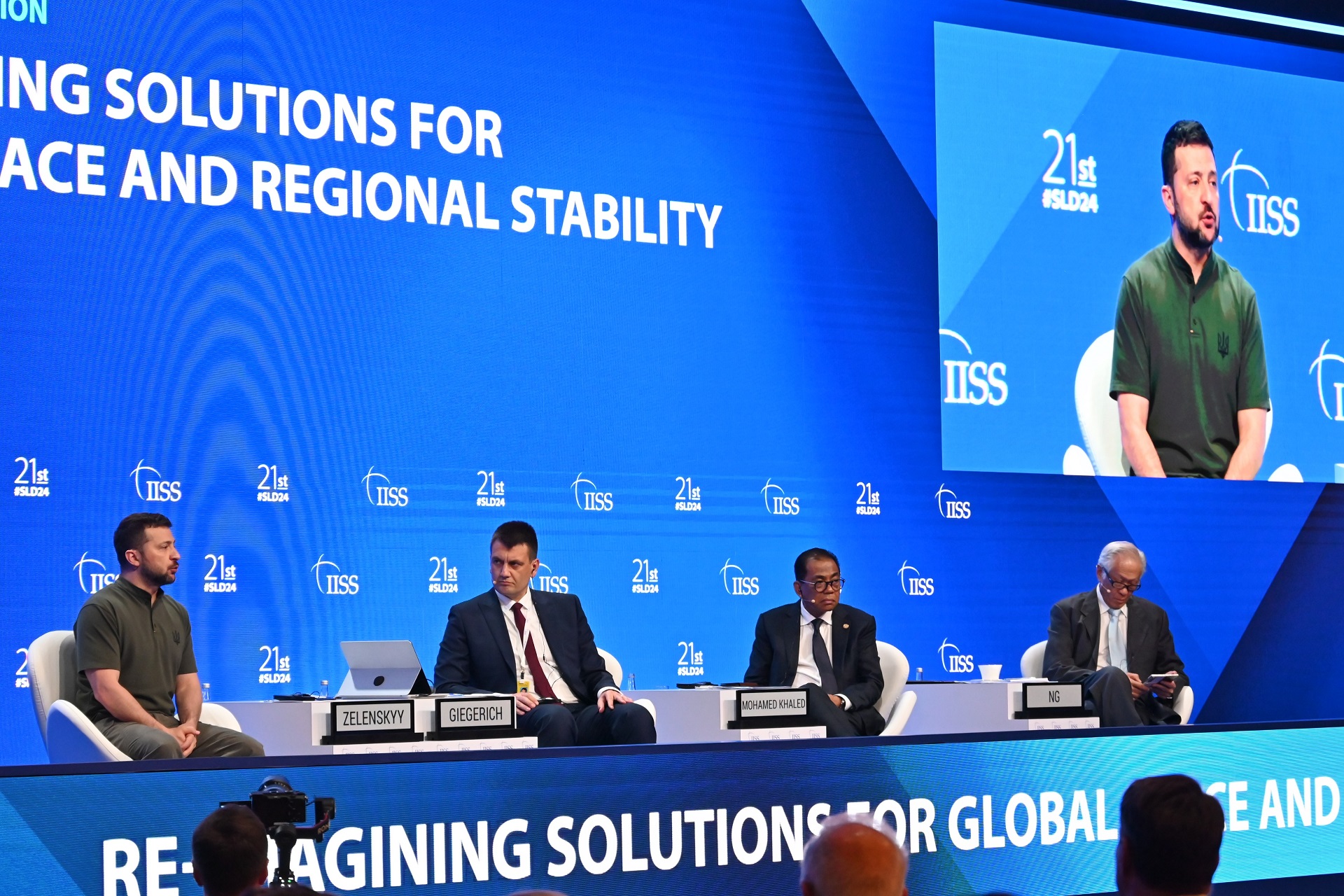
A call for peace at Shangri La Dialogue
02 Jun 2024
A repeated call for peace, especially in Asia. This was Minister for Defence Dr Ng Eng Hen's central message at the 21st Shangri La Dialogue (SLD), held from 31 May to 2 Jun.
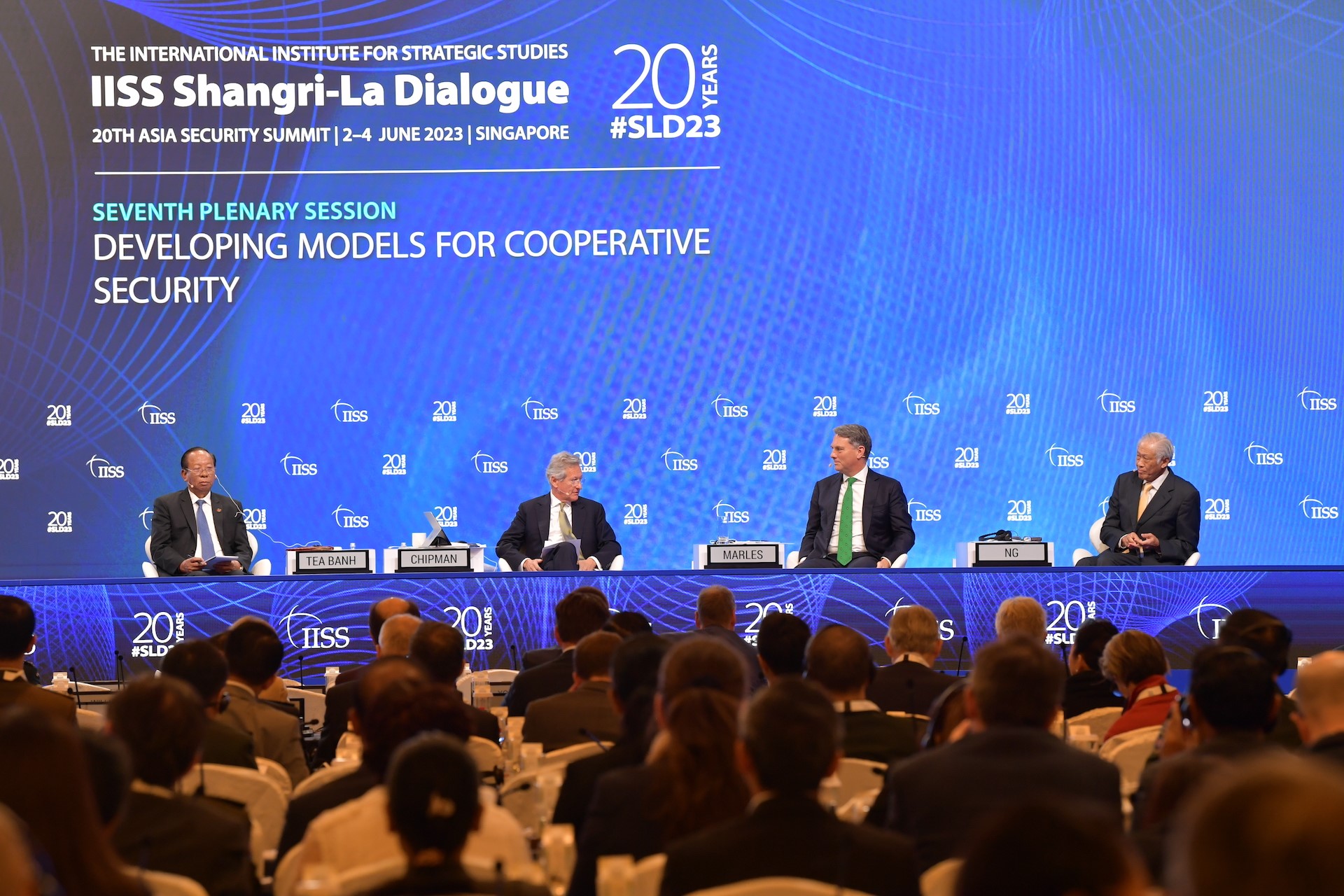
Shangri-La Dialogue sees frank discussion of security issues
04 Jun 2023
The 20th Shangri-La Dialogue, held from 2 to 4 Jun, saw ministers from around the world meet in Singapore to discuss key defence and security issues.
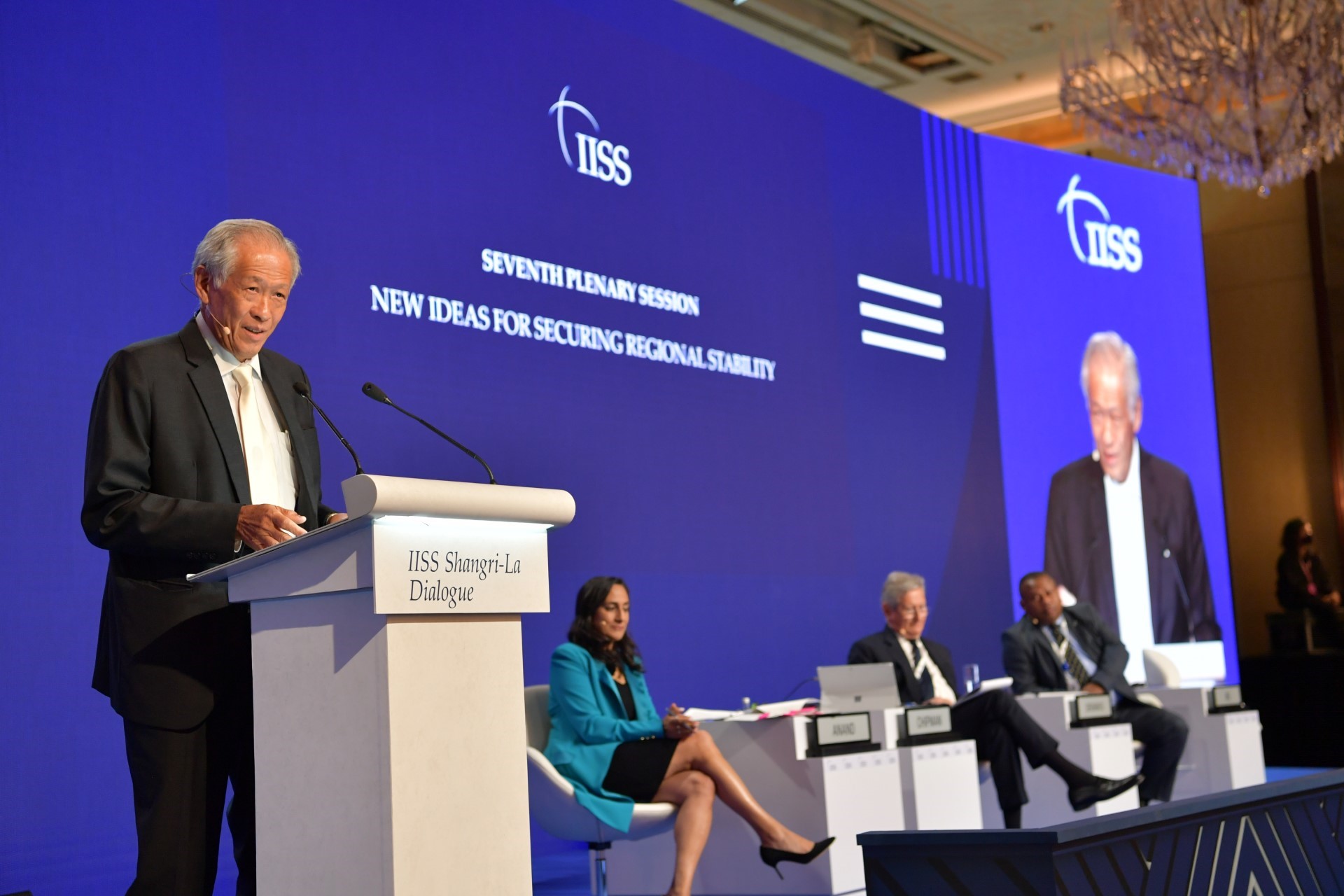
SLD remains valuable platform for crucial discussions: Dr Ng
12 Jun 2022
Minister for Defence Dr Ng Eng Hen spoke on the US-China relationship, the importance of a rules-based order and the role of ASEAN as a regional security platform at the 19th Shangri-La Dialogue (SLD).


